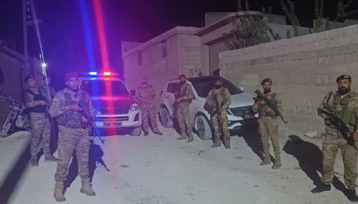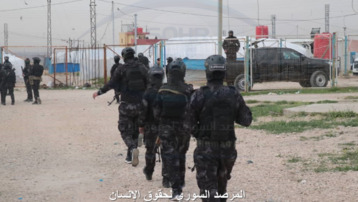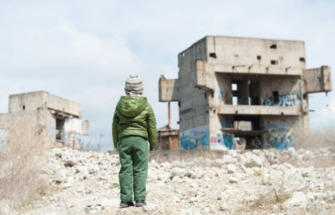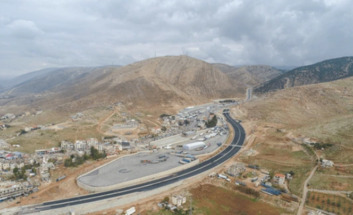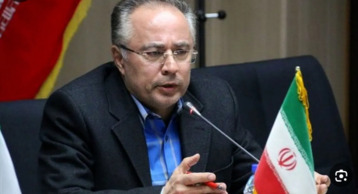-
Katz: We Will Not Allow Egypt to Violate the Peace Treaty
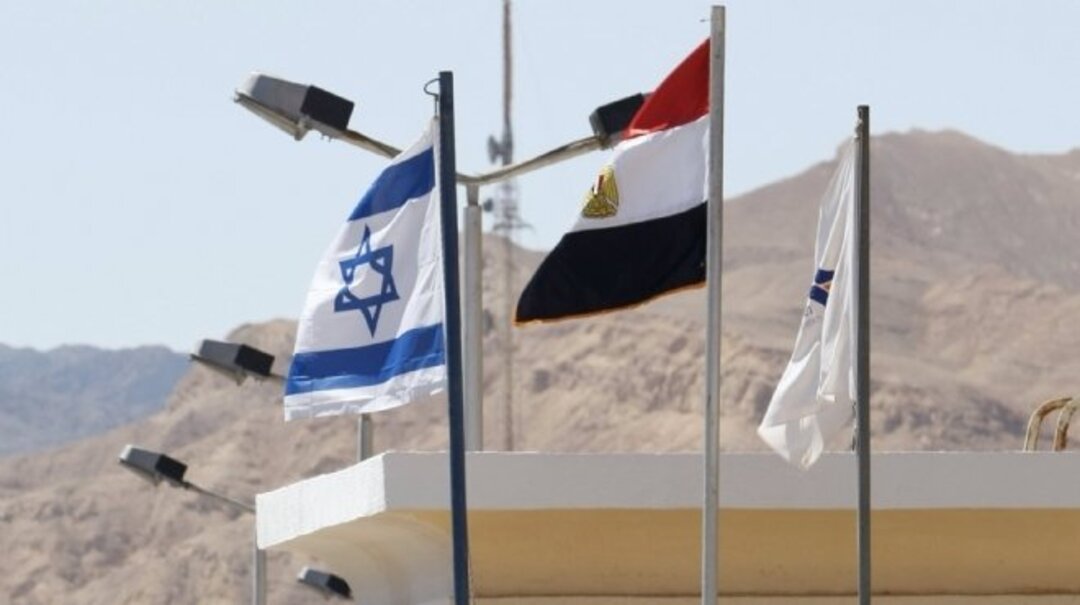
Israeli Defense Minister Israel Katz stated on Monday evening that Tel Aviv will not allow Egypt to "violate the peace treaty" signed between the two countries.
Katz made these remarks during a ceremony commemorating the 33rd anniversary of the death of former Israeli Prime Minister Menachem Begin, according to Yedioth Ahronoth.
He remarked, "Egypt is the largest and strongest Arab country - and it remains so."
He noted that the peace treaty "removed Egypt from the circle of war, in a leadership decision that changed the course of history and placed the State of Israel - and it remains so to this day."
Katz added, "However, we will not allow them (the Egyptians) to violate the peace treaty, and we will not permit structural violations. We are dealing with the matter, but the agreement is in place."
The Israeli newspaper pointed out that Katz's comments came in response to rumors circulated by right-wing elements on the internet about Egyptian military preparations to unexpectedly attack Israel despite the peace treaty.
These rumors have raised concerns among many Israelis.
Recently, Egypt and its military have faced criticism from Israeli politicians and officials.
Last week, Israeli opposition leader Yair Lapid suggested in a speech at the Foundation for Defense of Democracies in Washington that Egypt should govern the neighboring Palestinian Gaza Strip for 15 years in exchange for canceling its foreign debts.
Israeli Chief of Staff Herzi Halevi also expressed concern about what he termed "the security threat from Egypt," asserting that it does not currently pose a threat to Tel Aviv, but that could change at a moment's notice, according to Channel 14.
Halevi stated, "Egypt has a large army equipped with advanced weaponry, aircraft, submarines, and sophisticated missiles, along with a very large number of tanks and infantry fighters."
This is not the first time in recent history that an Israeli official has expressed concern about Egypt's military situation. Israel's permanent representative to the United Nations, Danny Danon, has voiced worries about the arming of the Egyptian military.
At the end of January, Danon said, "They have no threats in the region. Why do the Egyptians need all these submarines and tanks?"
In response, Egypt's permanent representative to the United Nations, Ambassador Osama Abdel Khalek, said in February, "Since Danon has given himself the right to question, the answer is clear, simple, and direct: Powerful and large countries like Egypt require strong armies capable of defending national security in all its dimensions through adequate and diverse armament."
He continued, "I affirm that Egypt was the first to lay the foundations for peace in the Middle East, and it is committed to the peace process as a strategic option, but it is capable of defending its national security with a strong army, backed by a history spanning thousands of years."
Ambassador Abdel Khalek emphasized that "the Egyptian military doctrine is defensive, but it is also capable of deterrence."
On March 26, 1979, Egypt and Israel signed a peace treaty in Washington following the "Camp David" agreement between the two sides in 1978, with key provisions including the cessation of hostilities and normalization of relations, the complete withdrawal of Israeli military and civilian forces from the Sinai Peninsula, and the establishment of a demilitarized zone.
Tags
You May Also Like
Popular Posts
Caricature
BENEFIT AGM approves 10%...
- March 27, 2025
BENEFIT, the Kingdom’s innovator and leading company in Fintech and electronic financial transactions service, held its Annual General Meeting (AGM) at the company’s headquarters in the Seef District.
During the meeting, shareholders approved all items listed on the agenda, including the ratification of the minutes of the previous AGM held on 26 March 2024. The session reviewed and approved the Board’s Annual Report on the company’s activities and financial performance for the fiscal year ended 31 December 2024, and the shareholders expressed their satisfaction with the company’s operational and financial results during the reporting period.
The meeting also reviewed the Independent External Auditor’s Report on the company’s consolidated financial statements for the year ended 31 December 2024. Subsequently, the shareholders approved the audited financial statements for the fiscal year. Based on the Board’s recommendation, the shareholders approved the distribution of a cash dividend equivalent to 10% of the paid-up share capital.
Furthermore, the shareholders endorsed the allocation of a total amount of BD 172,500 as remuneration to the members of the Board for the year ended 31 December 2024, subject to prior clearance by related authorities.
The extension of the current composition of the Board was approved, which includes ten members and one CBB observer, for a further six-month term, expiring in September 2025, pending no objection from the CBB.
The meeting reviewed and approved the Corporate Governance Report for 2024, which affirmed the company’s full compliance with the corporate governance directives issued by the CBB and other applicable regulatory frameworks. The AGM absolved the Board Members of liability for any of their actions during the year ending on 31st December 2024, in accordance with the Commercial Companies Law.
In alignment with regulatory requirements, the session approved the reappointment of Ernst & Young (EY) as the company’s External Auditors for the fiscal year 2025, covering both the parent company and its subsidiaries—Sinnad and Bahrain FinTech Bay. The Board was authorised to determine the external auditors’ professional fees, subject to approval from the CBB, and the meeting concluded with a discussion of any additional issues as per Article (207) of the Commercial Companies Law.
Speaking on the company’s performance, Mr. Mohamed Al Bastaki, Chairman BENEFIT , stated: “In terms of the financial results for 2024, I am pleased to say that the year gone by has also been proved to be a success in delivering tangible results. Growth rate for 2024 was 19 per cent. Revenue for the year was BD 17 M (US$ 45.3 Million) and net profit was 2 Million ($ 5.3 Million).
Mr. Al Bastaki also announced that the Board had formally adopted a new three-year strategic roadmap to commence in 2025. The strategy encompasses a phased international expansion, optimisation of internal operations, enhanced revenue diversification, long-term sustainability initiatives, and the advancement of innovation and digital transformation initiatives across all service lines.
“I extend my sincere appreciation to the CBB for its continued support of BENEFIT and its pivotal role in fostering a stable and progressive regulatory environment for the Kingdom’s banking and financial sector—an environment that has significantly reinforced Bahrain’s standing as a leading financial hub in the region,” said Mr. Al Bastaki. “I would also like to thank our partner banks and valued customers for their trust, and our shareholders for their ongoing encouragement. The achievements of 2024 set a strong precedent, and I am confident they will serve as a foundation for yet another successful and impactful year ahead.”
Chief Executive of BENEFIT; Mr. Abdulwahed AlJanahi commented, “The year 2024 represented another pivotal chapter in BENEFIT ’s evolution. We achieved substantial progress in advancing our digital strategy across multiple sectors, while reinforcing our long-term commitment to the development of Bahrain’s financial services and payments landscape. Throughout the year, we remained firmly aligned with our objective of delivering measurable value to our shareholders, strategic partners, and customers. At the same time, we continued to play an active role in enabling Bahrain’s digital economy by introducing innovative solutions and service enhancements that directly address market needs and future opportunities.”
Mr. AlJanahi affirmed that BENEFIT has successfully developed a robust and well-integrated payment network that connects individuals and businesses across Bahrain, accelerating the adoption of emerging technologies in the banking and financial services sector and reinforcing Bahrain’s position as a growing fintech hub, and added, “Our achievements of the past year reflect a long-term vision to establish a resilient electronic payment infrastructure that supports the Kingdom’s digital economy. Key developments in 2024 included the implementation of central authentication for open banking via BENEFIT Pay”
Mr. AlJanahi concluded by thanking the Board for its strategic direction, the company’s staff for their continued dedication, and the Central Bank of Bahrain, member banks, and shareholders for their valuable partnership and confidence in the company’s long-term vision.
opinion
Report
ads
Newsletter
Subscribe to our mailing list to get the new updates!



